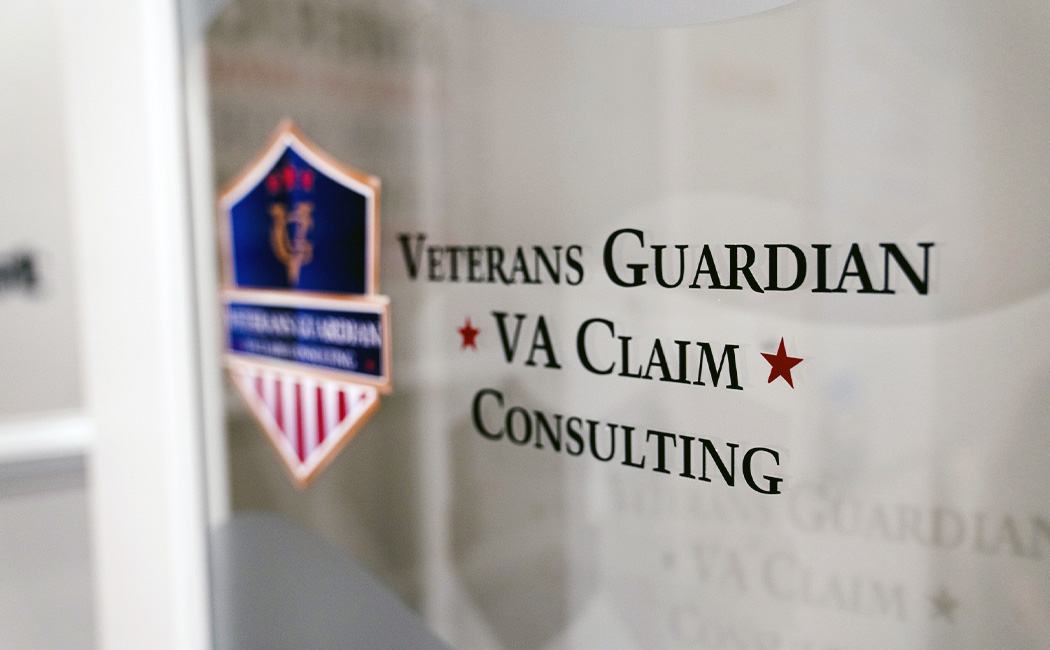Here at Veterans Guardian, we get many questions about VA claims for National Guard and Reserve members. National Guard and Reserve members with an honorable discharge status may be eligible for certain VA benefits. The primary factor in determining basic eligibility for VA benefits is “veteran status,” which is established by active military, naval, or air service and a discharge or release from active service under conditions other than dishonorable.
National Guard and Reservists who have served honorably on active duty establish veteran status and may therefore be eligible for VA benefits, depending on the length of active military service and other eligibility factors.
Active Guard Reserve Members
Some VA National Guard and Reserve member benefits require a certain amount of active service. VA states that active service includes:
- Active Duty (Title 10). This would mean full-time active duty in the Armed Forces, including unit deployment, “travel to and from such duty,” but does not include active duty for training.
- Full-Time National Guard Duty (Title 32). Duty under Title 32 would be duty that you perform that makes you entitled to receive pay from the Federal government. Common examples include being called up to respond to a national emergency or duties as a member of the Active Duty Reserve.
State Active Duty (when a governor activates National Guard members in response to a natural emergency) does not qualify as active service for purposes of receiving VA National Guard and Reserve member benefits.
Traditional National Guard or Reserve Member
VA benefit eligibility for National Guard and Reserve members is different from that of Active Guard Reserve members.
Traditional National Guard or Reserve members can become eligible for certain VA benefits by fulfilling a service commitment. However, to be eligible for VA disability compensation, traditional National Guard or Reserve members must have a disability that resulted from an injury or disease that was incurred or aggravated in the line of duty during either active duty or active duty for training. To be eligible for disability compensation for a disability that occurred during inactive duty training, the disability must have resulted from an injury, heart attack, or stroke.
Again, Veterans cannot receive VA disability compensation for injuries or conditions that result during State Active Duty (for example, when the National Guard is called up by a state’s governor in response to a natural or man-made disaster).
Whether a disability occurred in the “line of duty” is an administrative determination made by the Reserve Unit or National Guard after an investigation. The determination states whether a soldier’s injury or disease occurred while on duty status.
Filing a Claim
Before leaving military service, members either serving active duty or full-time National Guard duty, are encouraged to apply for the pre-discharge program. This may help quicken the claim decision process, and get you your benefits sooner. If you want to file a claim for disability benefits, you can do so 180 to 90 days before you leave service.
Applying for Disability Compensation:
For members filing disability compensation must submit all paperwork. Make sure the following is completed and in order.
- Application for Disability Compensation and Related Compensation Benefits (VA Form 21-526EZ)
- DD214 (discharge papers)
- All supporting medical records or documentation that can link your disabilities to service
- Other evidence (lay statements, medical nexus, other witness documentation)
For National Guard members seeking more information on the Pre-Discharge Program.
Types of Disability Compensation Claims:
- Pre-Discharge Claim – Submit a claim before your separation date. Processing claims will be faster, and this can be included in your Transition Assistance Counseling.
- Post-Discharge Claim – Submit a claim after your separation date. These claims are for disabilities that are due to service-related events and injuries and have become worse after service. For more information on Post-Discharge Claims
- Claims Based on Special Circumstances – Submit a claim that requires special compensation. For example, post service surgery that may be the result of a service-related event or injury. For more information on SMC Claims
VA Benefits for National Guard and Reserve Members
Compensation
VA Disability Compensation is a tax-free monthly benefit that is awarded with a 1to Veterans with a 0% disability rating or higher. The VA will pay monthly benefits to Reservists and National Guard members veterans for disabilities from disease or injury incurred or aggravated during active duty and active duty for training, and for disabilities from injury incurred or aggravated during inactive duty for training (Battle Assembly). However, the VA will not pay disability benefits for diseases and related conditions incurred or aggravated during inactive duty for training (Battle Assemblies) except for heart attacks and strokes.
Try our VA Disability Calculator
Life Insurance
The following are VA life insurance programs that provide financial security at competitive rates. Each one has different eligibility requirements, but for SGLI, FSGLI, and TSGLI the coverage enrollment is automatic.
Service members’ Group Life Insurance (SGLI): Is eligible for National Guard or Reserve members scheduled to perform at least 12 periods of inactive duty training per year. Any Individual Ready Reserve member who volunteers for a mobilization category is also eligible for SGLI.
Veterans’ Group Life Insurance (VGLI): Service members separating, retiring, or being released from Reserve or National Guard assignment and are already covered by SGLI are eligible. A National Guard or Reserve member covered by part-time SGLI, and who incurred a disability or aggravated a pre-existing disability while performing inactive duty training or traveling to or from duty are eligible. Also, if the member is of the Individual Ready Reserve or Inactive National Guard.
Family Servicemembers’ Group Life Insurance (FSGLI): A spouse or dependent child of an active duty service member covered by full-time SGLI, or a spouse or dependent child of a member of the National Guard or Reserve of a uniformed service covered by full-time SGLI are eligible.
SGLI Traumatic Injury Protection (TSGLI): Any member of the uniformed services and has SGLI, or any member who has suffered an injury that resulted in a qualifying loss between October 7th, 2001 and November 30th, 2005 are eligible.
Home Loans
Service members and Veterans who are purchasing, retaining, or adapting a home can utilize VA Home Loan Benefits. VA Home Loans are provided by private lenders, such as banks and mortgage companies. VA guarantees a portion of the loan, enabling the lender to provide you with more favorable terms.
National Guard and Reserve members may qualify for a VA-guaranteed home loan by meeting one of the following conditions:
- Six years of service in the Selected Reserve and must have
- Been discharged honorably
- Been placed on the retired list
- Been transferred to the Standby Reserve (this also includes an element of the
- Ready Reserve other than the Selected Reserve, but after service deemed as honorable)
- Continues to serve in the Selected Reserve longer than six years
- Served for 90 days or more on active duty (Title 10) during a wartime period
- Were discharged or released from active duty for a service-connected disability
Education Benefits
There are several types of education benefits for which National Guard and Reserve members can be eligible, and each has different requirements and offers different benefits.
Post-9/11 GI Bill
The Post-9/11 GI Bill offers up to 36 months of education benefits to those who are eligible, for programs ranging from flight training to undergraduate or graduate degrees.
According to VA, National Guard or Reserve members must meet the below criteria to be eligible for benefits under the Post-9/11 GI Bill:
- Received an honorable discharge from active duty “for a service-connected disability after serving at least 30 continuous days after September 10, 2001, or;”
- Have at least 90 cumulative days of active service including:
- Active duty service supporting named contingency operations (Title 10)
- Full-time National Guard duty under Title 32 “for the purposes of organizing, administering, recruiting, instructing, or training”
- Have full-time National Guard duty in which you were authorized by the Secretary of Defense or the President to respond to a national emergency (Title 32 section 502(f))
Montgomery GI Bill Selected Reserves (MGIB-SR)
The Montgomery GI Bill Selected Reserves (MGIB-SR) offers National Guard and Reserve members educational benefits up to $11,000 to help with costs of various education and training programs. Benefits under MGIB-SR benefits end for eligible members on the day they leave the Selected Reserve.
VA lists the eligibility criteria as follows, and all criteria must be met:
- Applicant must have a six year obligation to serve in the Selected Reserves
- Have completed Initial Active Duty for Training (IADT)
- Serve in a drilling unit and remain in good standing
- Have a high school diploma or its equivalent














